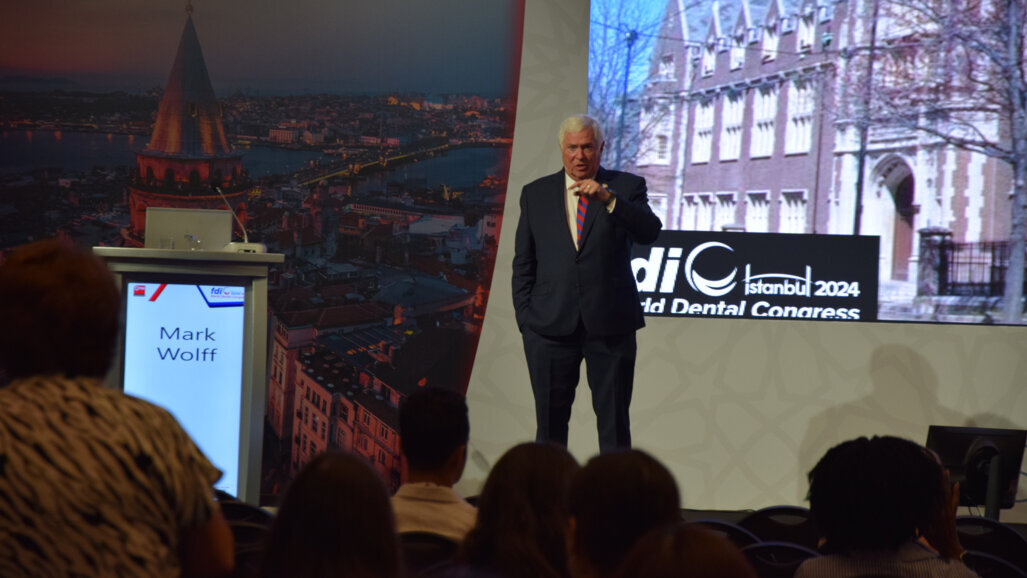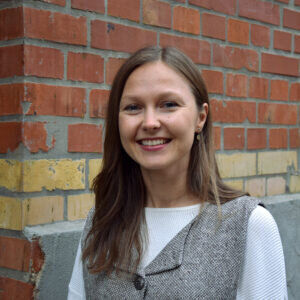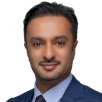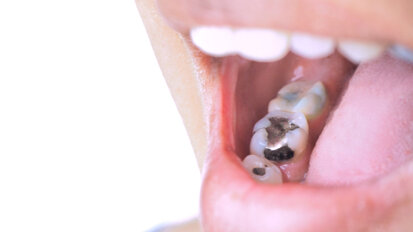In a rapidly evolving healthcare landscape, the integration of medical and dental care is gaining increasing attention. Prof. Mark S. Wolff, Morton Amsterdam Dean of the School of Dental Medicine at the University of Pennsylvania in Philadelphia in the US, brings a wealth of knowledge and insight to this critical discussion. In this interview, he delves into the intricacies of merging these two fields to enhance patient outcomes, especially as populations age and medical complexities grow. He also discusses the role of electronic health records (EHRs) in bridging the gap between dental and medical professionals and improving patient care globally.
Prof. Wolff, dentistry and medicine are closely interwoven. Do you believe that there is a need for further integration of medical and dental care? If so, why?
Absolutely! There are many reasons why this is important. The first is that people are living longer, they have increasingly complex medical conditions and they are being treated with a multitude of medications. Each of these may influence the ability to deliver safe and ever more complex dental care to our patients.
Interprofessional interaction can improve patient care, delivering better patient-centred care to more patients. There are large segments of patients who do not seek dental care. EHRs will help health providers recognise that a patient may have neglected his or her mouth, helping reduce emergency room visits, loss of work time owing to dental pain and even more severe sequelae in other health outcomes.
How is FDI’s Integrated Electronic Health Records in Dentistry project contributing to enhanced interprofessional collaboration and integrated healthcare in dentistry?
The project aims to identify best practices for and barriers to integrating dental and medical EHRs. It will determine how and what information should be captured from health records to improve patient-centred dental care, addressing the overwhelming amount of available health information for dental practitioners. Additionally, the project will identify what dental information can help other health practitioners enhance overall patient health, thus contributing to improved oral health and overall patient satisfaction.
Some countries, such as Estonia and Denmark, already provide access to integrated EHRs for patients. Why should other countries consider implementing similar systems?
The key to change is understanding best practices that may exist already. We have the opportunity to look at several countries and several health systems that are already effectively communicating between oral health and other medical systems. This will help better inform our processes.
“Interprofessional interaction can improve patient care, delivering better patient-centred care to more patients.”
What factors are slowing down the integration of dental and medical EHRs?
There are many barriers to integrating the dental EHR with the medical EHR, not the least of which is the fact that there are already many different EHRs globally, both dental and medical. These differences frequently require new integrations with the various existing systems. Another difficulty is the cost. Practitioners in many countries are responsible for absorbing the cost of EHRs themselves. In other countries, there is a national health plan that includes all EHRs except for dentistry. The integration may or may not be mandated, provided or funded by the government.
You will be lecturing on the perspectives of integrating dental and medical EHRs at the 2024 FDI World Dental Congress. What are the key points you plan to discuss in your presentation?
We will speak about the value of integrating dental EHRs with medical EHRs, such as the ability to improve the quality of care for all of our patients and the opportunity for us to increase access to much-needed dental care in the world.
Editorial note:
More information about the 2024 FDI World Dental Congress can be found here.
Tags:
Positioned as a landmark event within the dental industry, the 2024 FDI World Dental Congress (FDIWDC24) is poised for resounding success, offering a ...
ISTANBUL, Turkey: A pivotal event in the dental industry calendar, the FDI World Dental Congress is poised to make a triumphant return to Istanbul in Turkey...
ISTANBUL, Turkey: In a world where oral disease affects nearly half of the global population, achieving universal coverage for oral healthcare by 2030 is an...
ISTANBUL, Turkey: Prof. Gerry McKenna is a faculty member in the School of Medicine, Dentistry and Biomedical Sciences at Queen’s University Belfast, ...
ISTANBUL, Turkey: Dr Dany Daou is a distinguished dentist who is active in the dental public health field. In this interview with Dental Tribune ...
ISTANBUL, Turkey: Dental care in Turkey has gained widespread popularity, attracting people from around the world seeking treatment. Known for its ...
As the flagship scientific journal of FDI World Dental Federation, the International Dental Journal (IDJ) plays a crucial role in advancing and embodying ...
Live webinar
Tue. 10 March 2026
4:00 am EST (New York)
Assoc. Prof. Aaron Davis, Prof. Sarah Baker
Dr. Anna Lella, Ms. Francesca Nava
Prof. Hani Ounsi DDS PhD FICD, Dr. Amr Ghanem
Luís Lourenço, Dr. Nokukhanya Makwakwa



 Austria / Österreich
Austria / Österreich
 Bosnia and Herzegovina / Босна и Херцеговина
Bosnia and Herzegovina / Босна и Херцеговина
 Bulgaria / България
Bulgaria / България
 Croatia / Hrvatska
Croatia / Hrvatska
 Czech Republic & Slovakia / Česká republika & Slovensko
Czech Republic & Slovakia / Česká republika & Slovensko
 France / France
France / France
 Germany / Deutschland
Germany / Deutschland
 Greece / ΕΛΛΑΔΑ
Greece / ΕΛΛΑΔΑ
 Hungary / Hungary
Hungary / Hungary
 Italy / Italia
Italy / Italia
 Netherlands / Nederland
Netherlands / Nederland
 Nordic / Nordic
Nordic / Nordic
 Poland / Polska
Poland / Polska
 Portugal / Portugal
Portugal / Portugal
 Romania & Moldova / România & Moldova
Romania & Moldova / România & Moldova
 Slovenia / Slovenija
Slovenia / Slovenija
 Serbia & Montenegro / Србија и Црна Гора
Serbia & Montenegro / Србија и Црна Гора
 Spain / España
Spain / España
 Switzerland / Schweiz
Switzerland / Schweiz
 Turkey / Türkiye
Turkey / Türkiye
 UK & Ireland / UK & Ireland
UK & Ireland / UK & Ireland
 Brazil / Brasil
Brazil / Brasil
 Canada / Canada
Canada / Canada
 Latin America / Latinoamérica
Latin America / Latinoamérica
 USA / USA
USA / USA
 China / 中国
China / 中国
 India / भारत गणराज्य
India / भारत गणराज्य
 Pakistan / Pākistān
Pakistan / Pākistān
 Vietnam / Việt Nam
Vietnam / Việt Nam
 ASEAN / ASEAN
ASEAN / ASEAN
 Israel / מְדִינַת יִשְׂרָאֵל
Israel / מְדִינַת יִשְׂרָאֵל
 Algeria, Morocco & Tunisia / الجزائر والمغرب وتونس
Algeria, Morocco & Tunisia / الجزائر والمغرب وتونس
 Middle East / Middle East
Middle East / Middle East














































To post a reply please login or register